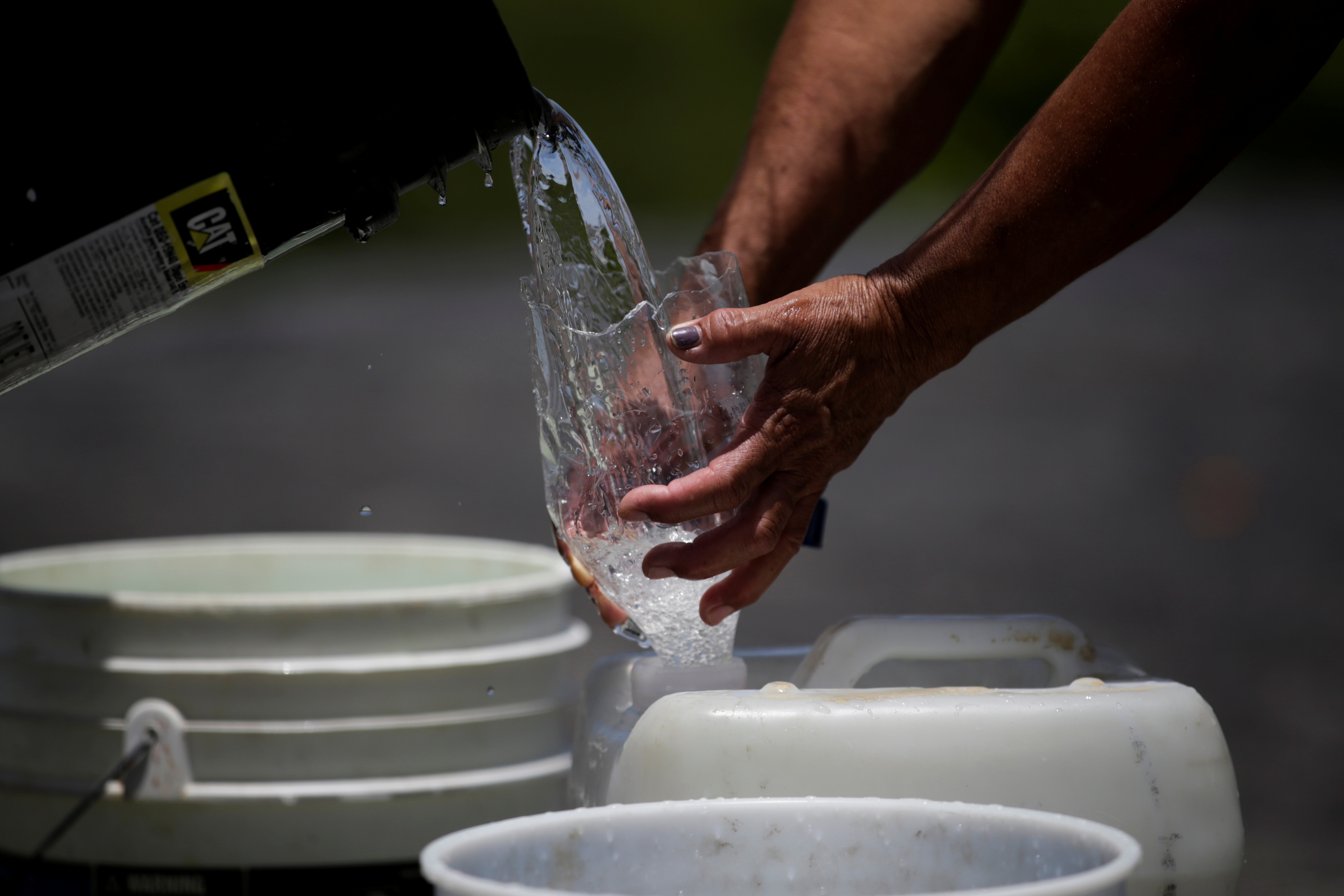Comment: Amid water, food, and energy crises, not a drop of wastewater should be wasted

Water is collected from a public supply during drought conditions in Mexico in June 2022. REUTERS/Daniel Becerril Acquire Licensing Rights
August 30 - Hamburg, Germany, is home to one of Europe’s largest municipal wastewater treatment plants. Treating the city’s wastewater from kitchens, bathrooms and toilets – as well as industrial and agricultural effluent, stormwater, and urban run-off – was traditionally very expensive, and it was one of the largest energy consumers of the municipality.
But, for several years now, Hamburg Wasser has not only been energy self-sufficient, it generates surplus heat and electricity that is fed into the public grid and to the neighbouring container terminal.
Hamburg is not alone in harnessing the environmental and economic potential of wastewater. Across the world, more and more businesses and governments are reusing nitrogen, phosphorous and potassium from wastewater to reduce their dependence on synthetic fertilisers, save freshwater and benefit a wide range of industries – creating new jobs in production of paper, hygiene, rubber, paint, fabrics, as well as food preservatives and food packaging.
In fact, if wastewater utilisation were to reach its full potential, it could provide electricity for around half a billion people per year, offset over 13% of the global agricultural nutrient demand, supply over 10 times the water provided by current global desalination capacity, and irrigate around 40 million hectares – an area equal to almost the size of Paraguay.
Yet the potential to harness wastewater generally remains underutilised, causing immense damage to human health and the environment. As of 2020, around 48% of domestic and urban wastewater generated globally was discharged without safe treatment, polluting our rivers, lakes, seas and arable lands – contaminating water sources and food, degrading soil and potable water sources, increasing diseases, pollution and destroying the habitats of a long list of species.
A tractor applies liquid nitrogen fertiliser to a wheat field in Germany. Nitrogen, phosphorous and potassium can be extracted from wastewater to reduce agriculture's dependence on synthetic fertilisers,. REUTERS/Michaela Rehle Acquire Licensing Rights
Through the release of potent greenhouse gases such as methane and nitrous oxide, wastewater also accounts for about 1.57% of global emissions, just below the climate harm caused by the global aviation industry.
There are several reasons governments and private sector entrepreneurs are missing out on the opportunity to treat and reuse wastewater: fears regarding human health and the implications for antimicrobial resistance, as well as the risk that pollutants and microplastics may still be present in reclaimed resources and recycled water.
Other barriers include low capacity, inconsistent or competing policy objectives and weak compliance and enforcement; lack of valuable data relating to wastewater recovery and reuse; inadequate financing; low social and cultural acceptance; and negative perceptions of wastewater.
Addressing these concerns and overcoming these barriers is absolutely essential, as global population growth means growing the annual production of wastewater, estimated in 2015 to be around 370 billion cubic metres a year. This is five times the annual volume of water passing over Niagara Falls.
Progress made in recent years to minimise open defecation is far from what is needed to guarantee access to basic sanitation facilities to billions of people. Some 2.2 billion people lack safe drinking water, and 700 million people could be displaced due to water scarcity by 2030, despite the world’s nations commitment to achieving the Sustainable Development Goal of ensuring the availability and sustainable management of water and sanitation for all. The free flow of wastewater makes today’s water crisis a potential water catastrophe.
A view of a bridge over the Tiete river, where toxic foam, product of the discharge of chemical products, covers the water in Salto, Sao Paulo state, Brazil, July 7, 2023. REUTERS/Amanda Perobelli Acquire Licensing Rights
At this year’s World Water Week – the leading annual conference on water, this year focusing on innovation – the United Nations Environment Programme’s Global Wastewater Initiative (GWWI) and GRID-Arendal presented its report to decision-makers, business leaders, city planners, activists and researchers from all over the world.
Improving wastewater management, as well as reducing the volume of wastewater produced, and preventing and reducing contamination, may all be complex challenges, but that’s not just because of the technical and financial issues listed above.
What must fundamentally change to stop the opportunity of wastewater from disappearing down the drain is our own approach to production and consumption. This also encompasses safely treating and reusing wastewater and its byproducts such as the biogas generated, hence turning emissions into climate solutions.
Whether in goods made of plastic that are easily discarded as “single-use” or in minerals that are critical to transitioning away from a fossil fuel-based economy, or indeed in wastewater management, the market as a whole must shift to circularity.
This is not just an economic shift away from extracting primary resources to incentivising repairing, refurbishing, repurposing, and recycling resources that have already been extracted. It is above all a shift in consciousness to recognising the health, environmental and economic value in reducing consumption of certain goods and reusing the ones that are consumed.
In other words, there needs to be a tectonic shift in how we do business and how we regulate our economies. After that, effective governance, investment, innovation, strengthening data and improving capacity to implement will follow.




